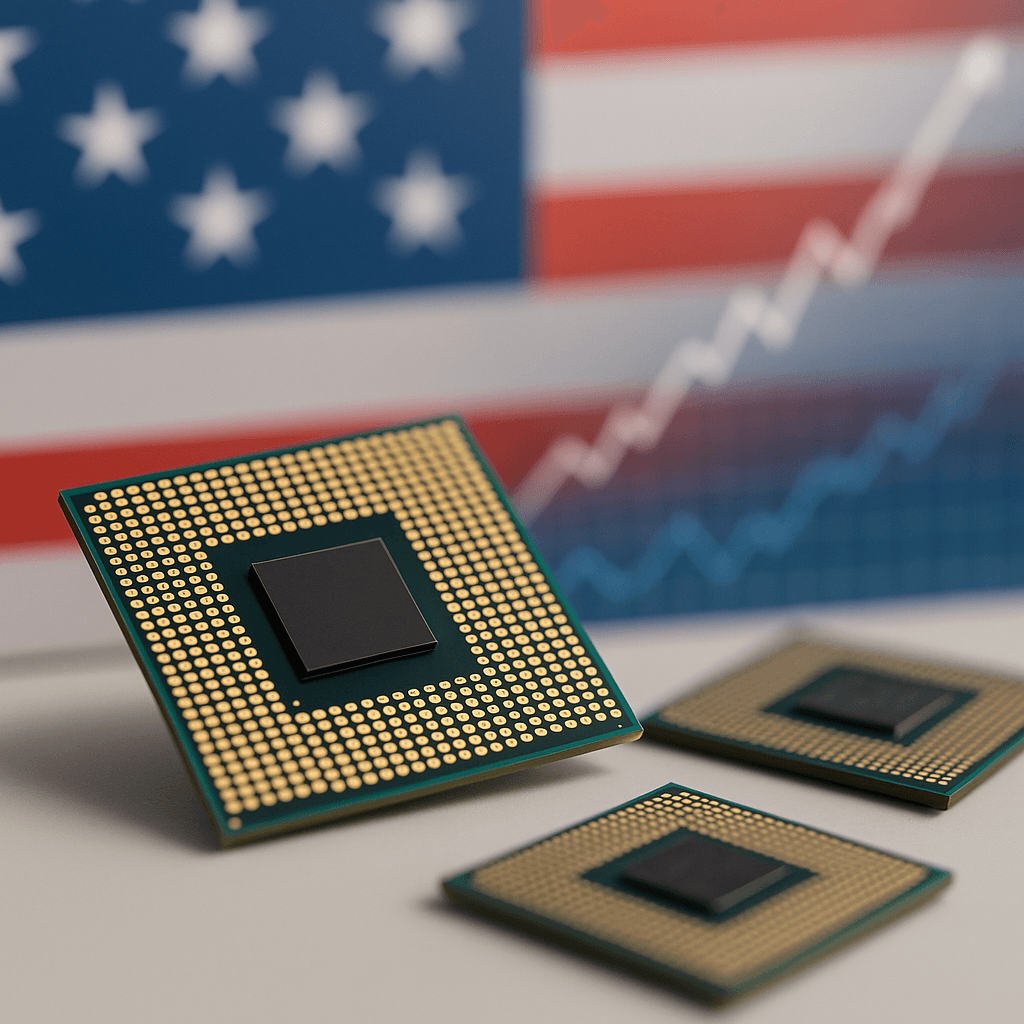President Trump just announced the U.S. government will take a 10% equity stake in struggling chipmaker Intel, sending shares up 6% as Washington makes its boldest move yet to secure America's semiconductor future. The unprecedented deal marks a dramatic shift in U.S. industrial policy, with the government becoming a direct investor in corporate America.
Intel just became the U.S. government's biggest bet on American semiconductor manufacturing. President Trump's Friday announcement that Washington will take a 10% stake in the struggling chipmaker sent shares soaring 6%, adding roughly $6 billion to the company's market value in a matter of hours. "They've agreed to do it and I think it's a great deal for them," Trump told reporters at the White House, though Intel representatives declined to comment and White House officials quickly clarified that nothing has been finalized. The announcement follows Commerce Secretary Howard Lutnick's declaration earlier this week that the government wanted equity in exchange for CHIPS Act funding. "We should get an equity stake for our money," Lutnick told CNBC, adding that the government's position would be "nonvoting." The move represents the most dramatic shift in U.S. industrial policy in decades, with Washington taking direct ownership stakes in strategic companies rather than simply providing grants or loans. Intel has been hemorrhaging value as it struggles to compete with Taiwan Semiconductor Manufacturing Company, which produces chips for Apple, Nvidia, Qualcomm, and even Intel itself. The company's market cap has plummeted from over $200 billion in 2021 to just over $100 billion today, making a 10% government stake worth approximately $10 billion. This week brought a rare bright spot when SoftBank announced a $2 billion investment for roughly 2% of the company, but Intel remains under intense pressure. CEO Lip-Bu Tan told employees in July there would be "no more blank checks" as the company slowed construction of its massive Ohio factory complex, pushing the start of operations back to 2030. The government intervention comes as represents America's only hope for advanced semiconductor manufacturing on U.S. soil. The company's "Silicon Heartland" project in Ohio was designed to produce cutting-edge AI chips and reduce U.S. dependence on Asian manufacturers, but mounting losses and technical challenges have threatened the timeline. finalized $8 billion CHIPS Act grant, approved under the Biden administration, was supposed to fund this expansion. Now that money comes with unprecedented strings attached—direct government ownership in one of America's most strategically important technology companies. The precedent has Wall Street buzzing about which other semiconductor companies might face similar government investment demands. Trump and Tan are scheduled to meet this afternoon, where the specifics of the equity arrangement will likely be hammered out. Market analysts are watching closely to see whether this represents a one-off intervention or the beginning of a broader "America First" industrial policy that could reshape how the government funds strategic industries.







